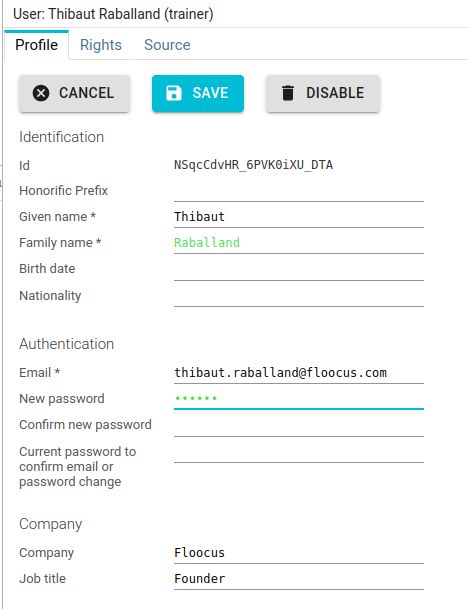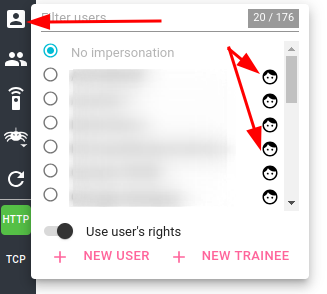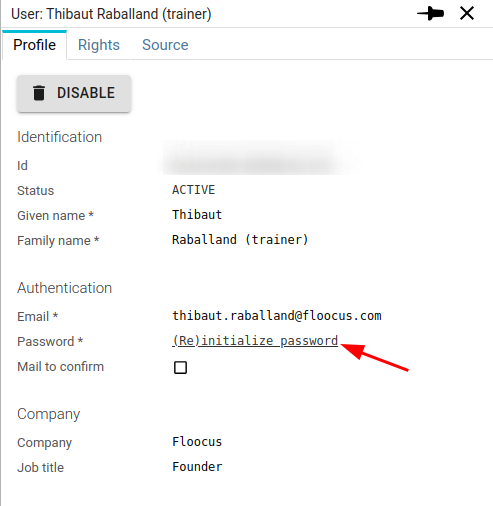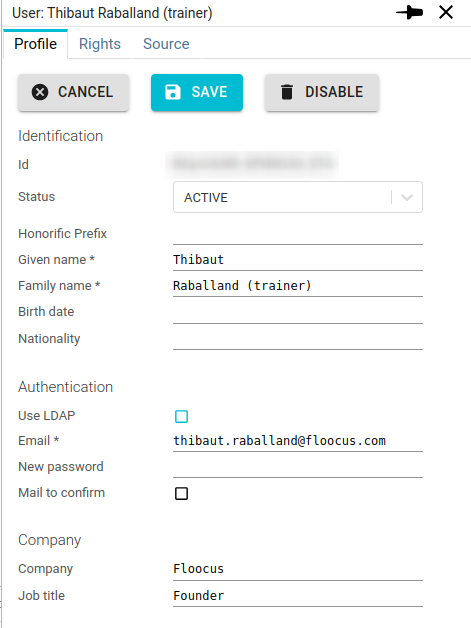User profile edition
Your user profile may be edited on the user interface.
Edit your own profile
You may access it from the top right icon:

A detail panel opens on the right:

Editing values
Clicking on edit allows you to change any details of your profile.
- When changing a field value, its color gets from black to orange.
- When changing field focus,
- If the field value is valid, it gets green
- Or it gets red, with a tip icon telling you what is wrong

Changing password
When changing password, Spider will ask twice for the new password, and once for the old one:

In case of mismatch, the password change will be rejected.
If validated, a mail is sent to your email to inform ou of the password change.
Changing email
When changing your email address, an email is sent to your (previous) email to warn you.
Changing email address is not possible when connecting with LDAP.
Edit another user profile
For operators
Access to other users profile is possible for all users having any of these [permissions](/docs/operating/administration/user mgt/userAccessRights):
Create usersDisable usersRegenerate passwordsManage rightsImpersonate users
An operator may also open another user profile from the users list, by clicking on the 'head' icon.

Profile edition by operators is limited:
- An operator with
Generate passwordpermission may regenerate your password manually, by replacing it with a random one.

-
Operators with
Create userspermission may only edit a profile when the user is inDRAFT(on creation). -
Other operators cannot edit user personal profiles.
For system administrators
System administrators may however edit other user profiles:

This way, they may:
- Confirm manually the mail
- When
mail to confirmis checked, a mail is sent to the user with a link to validate his email before being able to connect - When unchecked, the user may connect straight
- When
- Change email
- Change password (by specifying it), without giving the previous one 😉
- Activate or not the ldap authentication
An administrator cannot change a password of a user connecting through LDAP.
But he can change the email used to authenticate on the LDAP (useful in case of email change inside the LDAP).
Local agents
System administrators may create local agents for a user from his profile.

This creates 3 agents that are owned by the user:
- A local Controller
- A local Gocipher
- A local Whisperer
The 3 are meant to run on the localhost of the user, for local troubleshooting.
Only 1 set is allowed per user.
When created, a hasLocalAgents flag is set on the user profile, and the creation button is disabled.
In case of agents deletion, they may be recreated after a profile edition by the administrator, that would set the flag to false again.